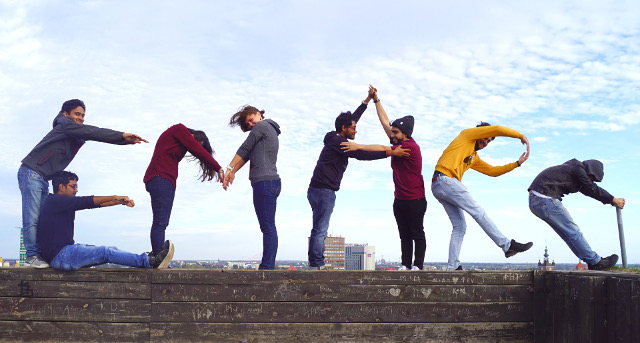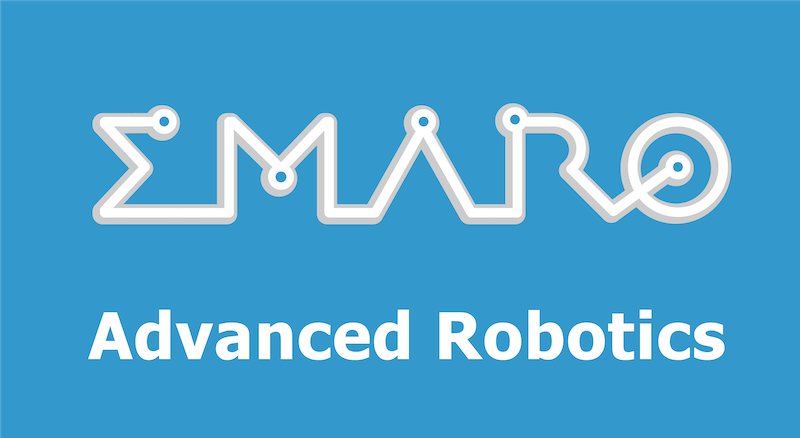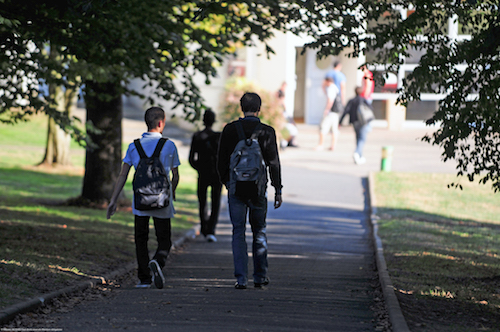EMARO Joint Programme in Advanced Robotics

Background
The EMARO (European Master on Advanced Robotics) programme welcomed its first students in 2008, under the Erasmus Mundus European Programme of Excellence label. The programme was extended in 2014 as the Erasmus+ (EMARO+) programme.As the European funding cycle of EMARO+ recently came to an end, three of the partner institutions decided to maintain this project and the community around it by concluding an EMARO+ Double Degree agreement.
The programme enjoys strong recognition, both in the industrial and academic world, thanks in particular to the international cooperation it fosters, both in teaching and research.
Consortium Partners
The 3 partner institutions for the EMARO Double Degree programme are:
- Centrale Nantes, France
- University of Genoa, Italy
- Warsaw University of Technology, Poland

Application requirements
Eligibility
To be eligible to apply for the double degree programme, students must be enrolled in the first year (M1) of one of the following local master's programmes:- MSc Control and Robotics - Advanced Robotics at Centrale Nantes in France.
- Master in Robotics Engineering (Laurea Magistrale in Robotica) at the University of Genoa in Italy
- Master of Engineering in Robotics and Control (Magister, specjalno Automatyka i Robotyka) at Warsaw University of Technology in Poland
How to apply
During the first year of one of these Master's programmes, students can apply for the EMARO double degree programme at a second partner institution. They can apply by sending a CV and a cover letter to their institution of choice:- For an M2 at Centrale Nantes, contact master.admission@ec-nantes.fr
- For an M2 at the University of Genoa in Italy, contact emaro-robeng@dibris.unige.it
- For an M2 at Warsaw University of Technology in Poland, contact teresaz@meil.pw.edu.pl
Scholarships
- Students can enquire of their M1 institution whether they are eligible for an Erasmus+ mobility grant
- Consortium scholarships may also be awarded by joint decision of the two host institutions.
Learn more
Contact
Study
- UNDERGRADUATE
- GRADUATE
- Engineering Programme "diplôme d'ingénieur"
- Fast-track Engineering Programme
- 5 Master of Science (MSc) Programmes with 10 Specialisms
- Integrated Master-PhD Track
- 5 Erasmus Mundus Joint Masters
- 3 Joint Master's Programmes
- Advanced Master's "Mastère Spécialisé ® "
- Degree apprenticeship in partnership with ITII
- PhD
- EXCHANGE STUDENTS
- EXECUTIVE EDUCATION
- TUITION FEES AND FINANCING
- MEET OUR GRADUATES
- APPLY NOW
- INNOVATIVE TEACHING
- A VOCATIONAL APPROACH
- ENTREPRENEURSHIP
- CIVIC ENGAGEMENT
- DEGREE CERTIFICATES
- KEY DATES FOR THE ACADEMIC YEAR









